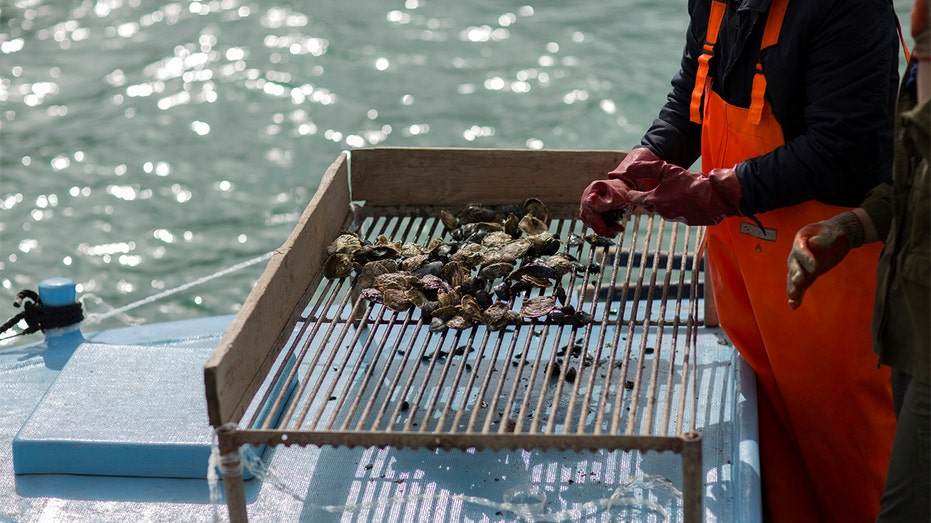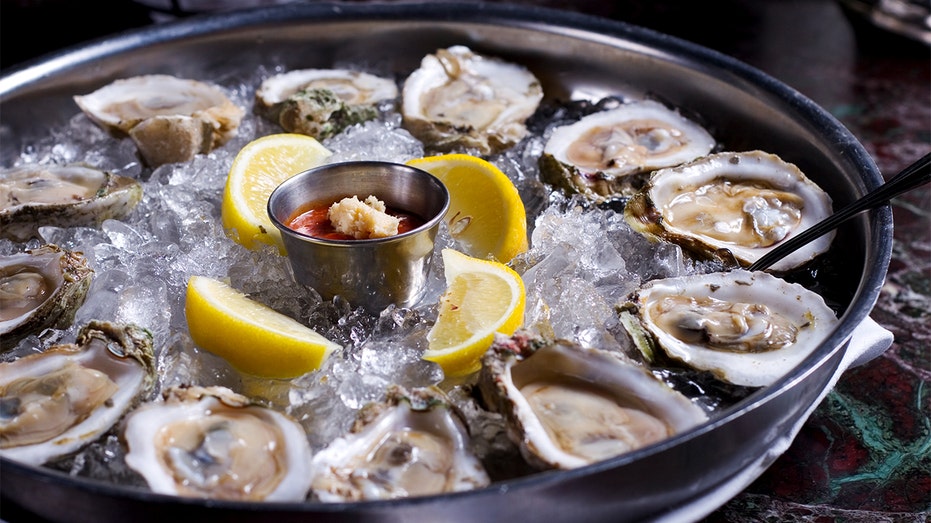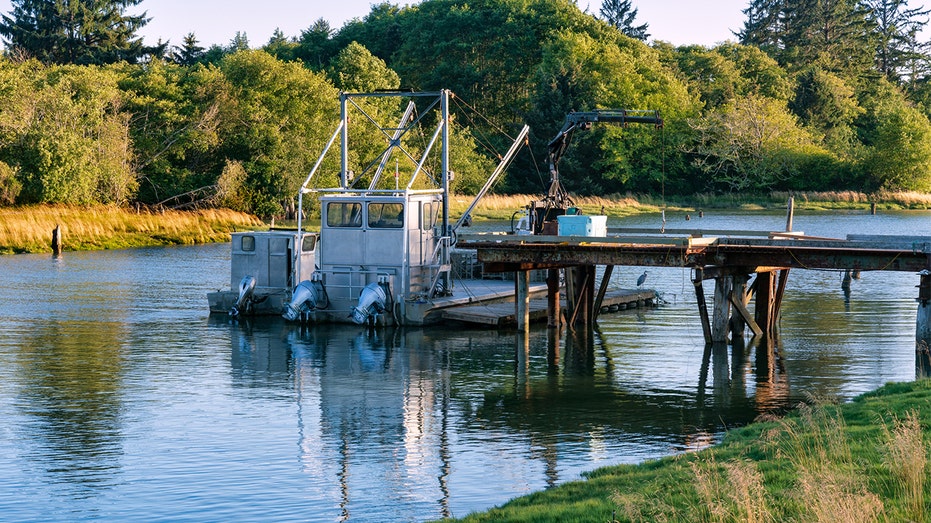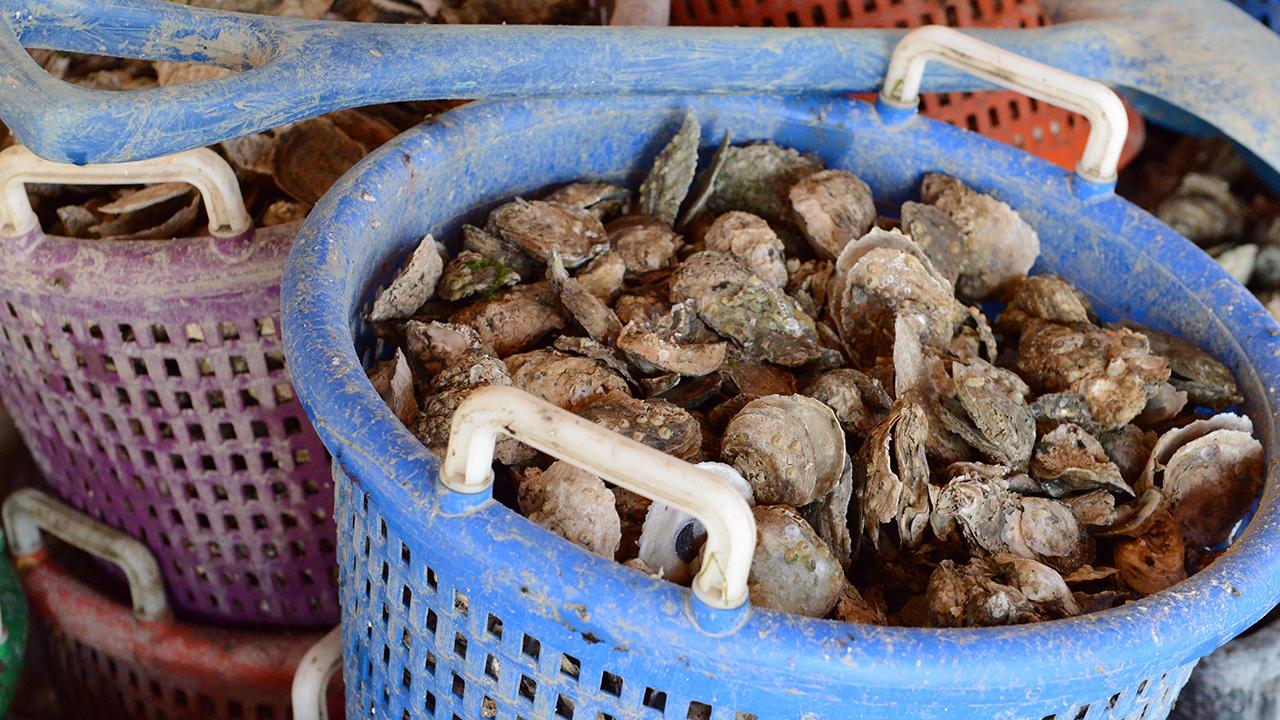Oyster farmers reeling in coronavirus pandemic
Oyster farmers left with more supply than demand as sales remain sluggish ahead of prime oyster-eating season
The oyster industry is in murky water.
With restaurants serving a limited number of diners and relying primarily on take-out in the age of the coronavirus pandemic, oyster farmers are left with more supply than demand as sales remain sluggish ahead of prime oyster-eating season this fall.

Oyster farmers must harvest oysters before they get too big to sell. (iStock).
Before COVID-19, shellfish supplier Copps Island Oysters in Norwalk, Connecticut, was selling more than 50,000 oysters to restaurants and buyers across the country, owner Norm Bloom told FOX Business. Now his weekly sales have plummeted as a result of limited dining.
“A lot of times we get hit by a storm or something like that, but then when we open up it’s like the world’s hungry. We’ve never been up against something like this," Bloom said. "I don’t know what the fall or winter is going to bring. We’re sitting with a lot of oysters.”
CHESAPEAKE BAY OYSTERS GET MORE ATTENTION AT PIVOTAL TIME
Hundreds of oyster farmers like Bloom are in the same boat. Growing oysters is time-sensitive, and if they’re kept growing in their cages for too long they’ll get too big to sell.

With fewer restaurants buying oysters as a result of less foot traffic, oyster farmers are left with shellfish surplus. (iStock).
"What's going to hurt the oyster farmers is the size. When they get too big, nobody wants them -- you have a window because the water is so warm they’re growing so quickly," said Logan Clarke, founder of The Lobster Trap, a Cape Cod, Massachusetts-based wholesale seafood distributor.
CORONAVIRUS WORRIES MEAN ONLY 42% OF AMERICANS WOULD DINE OUT IN NEXT 2 MONTHS: STUDY
Now, oystermen like Bloom are left with excessive amounts of the mollusks with a limited shelf life. He says he's selling them directly to consumers to avoid letting them go to waste.
We’ve never been up against something like this.
“When the virus hit, we couldn’t stop farming. You have to keep moving the product otherwise it smothers,” Bloom said.
The wholesale price hasn’t dropped, with oysters around 60 cents each, Bloom noted. But even when restaurants are able to reopen, many of them will be ordering a fraction of what their original menus called for. New York City’s Grand Central Oyster Bar inside Grand Central Terminal has been closed since March with indoor dining suspended indefinitely. During normal times, the iconic seafood restaurant was selling up to 5,000 oysters on the half shell per day, not including cooked oysters.

Oyster harvest along the Western Coast. (iStock).
GET FOX BUSINESS ON THE GO BY CLICKING HERE
Now, chefs at the Midtown Manhattan restaurant have shortened the menu anticipating when they’ll be able to get shucking again. But instead of offering guests more than two dozen varieties of bivalves like their menu had before the pandemic hit, there’ll only be five options -- two West Coast and three East Coast oysters -- executive chef Sandy Ingber said.
“I’m constantly being contacted by my oyster people wanting to know when they can send oysters again, but I have to, unfortunately, tell them, ‘Sorry, we’re closed.’ And when we do reopen, we’re going to be reopening at 50 percent capacity,” Ingber said.




















